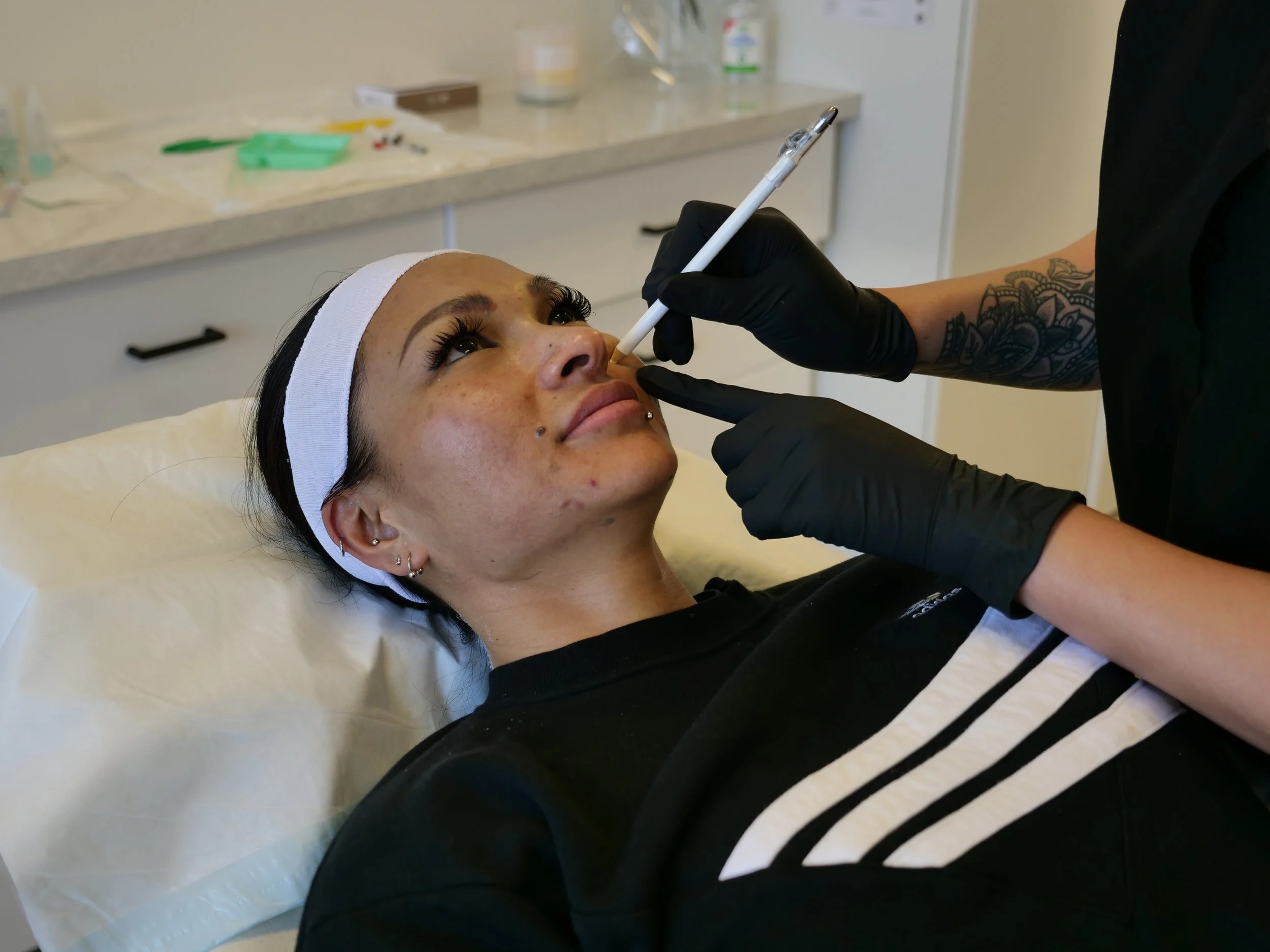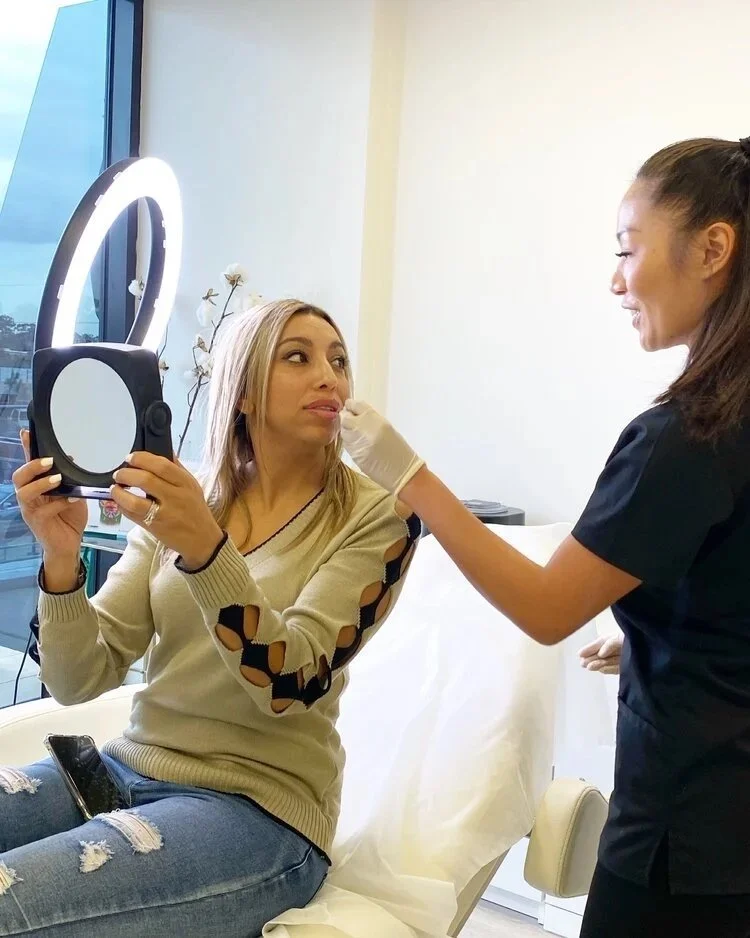Facial Volume Loss
Understanding changes in facial structure over time
Facial volume loss is a natural part of the aging process. As we get older, the fat pads beneath the skin gradually disperse and shift, reducing support for facial tissues. At the same time, collagen and elastin production slows down, leading to a decrease in firmness and plumpness.
This process can change how balanced or symmetrical our features appear and may make certain areas look recessed, droopy, or hollow depending on the location of the volume loss. Unlike fine lines and wrinkles that occur on the skin’s surface, volume loss happens in the deeper layers of the face.
Where does facial volume loss occur?
Volume changes can happen in multiple facial regions, including:
Cheeks
Under-eye area
Forehead and temples
Jawline and lower face
Neck
Lips
Some areas, such as the mid-face and under-eyes, are more noticeable when volume changes occur. Flattened cheeks or hollowing under the eyes can create a tired appearance and make fine lines along the nasolabial folds appear deeper. Reduced fat support in the lower face can contribute to marionette lines around the mouth.
What affects facial balance and proportion?
Facial harmony is influenced by multiple factors:
Age-related changes — shifting fat pads and reduced bone density
External factors — sun exposure, smoking, diet, inconsistent skincare, and pollution
Genetics — some people notice changes earlier or in different areas
These factors work together to impact facial contouring, definition, and perceived firmness.
What are the options for addressing facial volume loss?
A range of non-surgical treatments may help to improve the appearance of volume loss by:
Stimulating collagen production
Restoring or adding volume
Improving overall contour and definition
These treatments are minimally invasive, usually take less than an hour, and require little downtime. They are tailored to each individual, taking into account age, skin type, facial structure, and personal goals.
Common concerns people discuss in consultation:
Thinning or uneven lips
Hollow cheeks
Nasolabial folds
Marionette lines
Weak chin or jawline definition
Why book a consultation with Nurse Kerziah?
Kerziah Del Rio is a qualified Cosmetic Nurse with over 7 years of experience in aesthetic medicine. As the owner of Next Aesthetics for more than 5 years, she has a holistic approach to facial rejuvenation, focusing on natural, balanced outcomes.
A professional consultation is essential to:
Assess your individual facial anatomy
Understand your preferences and goals
Determine which treatment options may be appropriate
Ensure your medical history and lifestyle are considered for safety
After-care guidance (general):
Avoid strenuous exercise for 24 hours
No smoking or alcohol for 24 hours
Avoid rubbing or massaging treated areas
Sleep on your back where possible for the first night
Avoid makeup for 12 hours
Avoid helmets, sunglasses, or tight headwear if cheeks are treated (for up to 4 weeks)
Do not wax or resurface treated skin
Avoid ibuprofen, aspirin, or fish oil for 24 hours post-treatment
Minor bruising may occur; arnica or hirudoid cream can help reduce it
Small lumps may be felt for up to 2 weeks as the body adjusts
Full results may take 2–4 weeks to settle
If you have any concerns after treatment, contact Nurse Kerziah directly on 0452 041 414.
Who is not suitable for these treatments?
Anyone who is pregnant or breastfeeding
Individuals under 18 years old (even with parental consent)
People currently on antibiotics or with an active infection
Anyone unwell or within four weeks of receiving the COVID-19 vaccine



